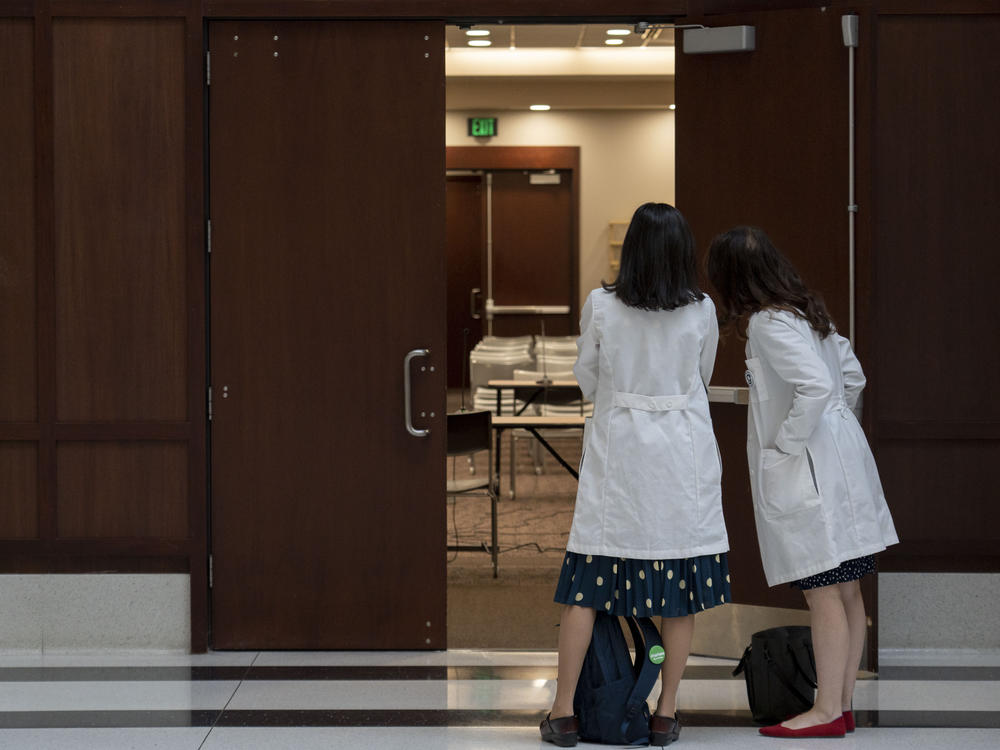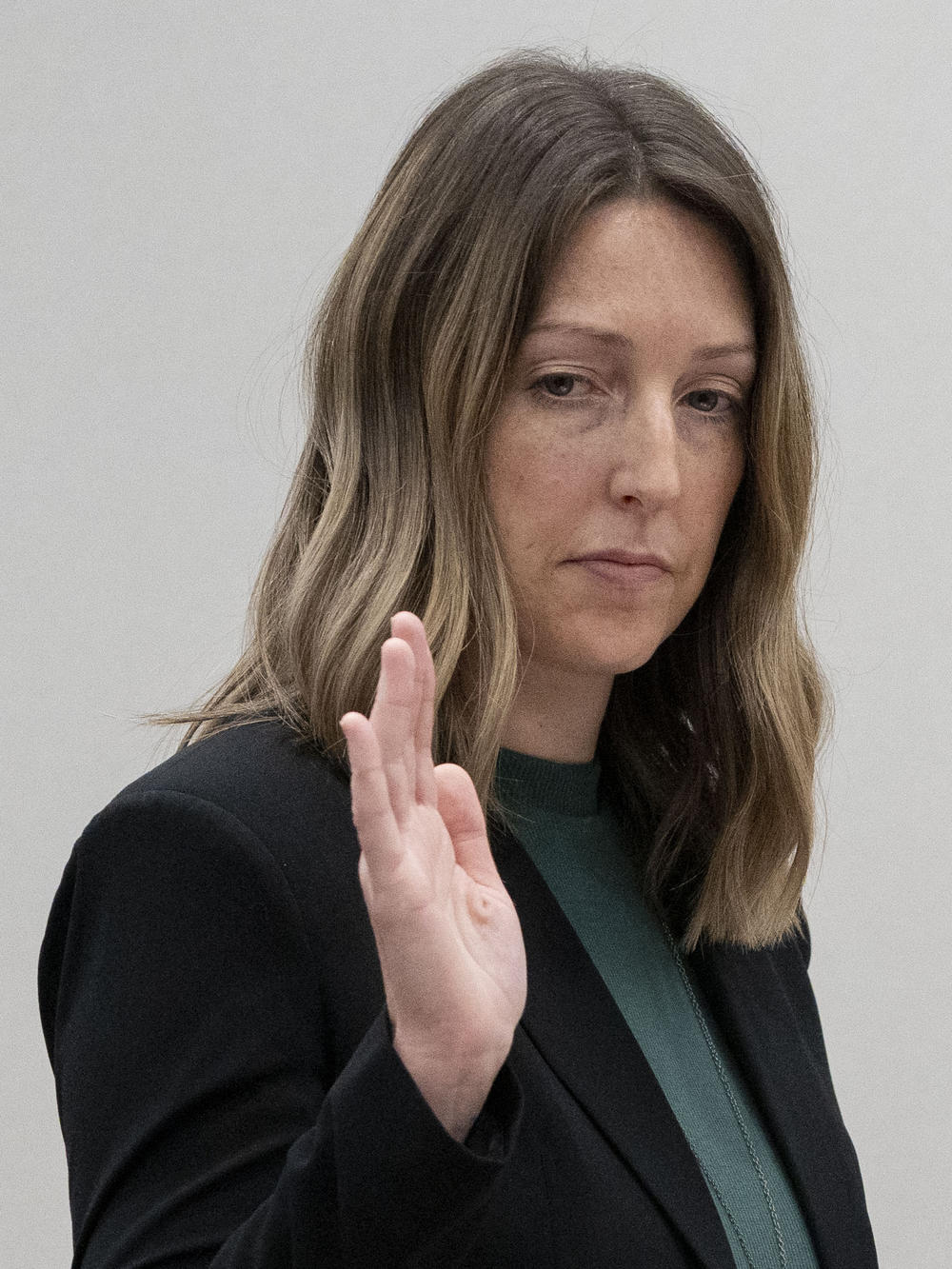Section Branding
Header Content
Indiana reprimands doctor who spoke publicly about providing 10-year-old's abortion
Primary Content
A state medical board is reprimanding an Indiana doctor who drew national attention after speaking publicly about providing an abortion for a 10-year-old rape victim from Ohio.
Dr. Caitlin Bernard was called before Indiana's Medical Licensing Board after the state's Republican attorney general filed a complaint. A majority of board members found that she had violated privacy laws by speaking about the case, and voted to fine her $3,000 in addition to the reprimand.
At Thursday's hearing, Bernard said she spoke out about the case to inform the public about the impact of state abortion laws taking effect across the U.S., triggered by the Supreme Court decision overturning Roe v. Wade last June.
"I think that it's incredibly important for people to understand the real-world impacts of the laws of this country, about abortion or otherwise," Bernard said during a day-long hearing on Thursday in Indianapolis. "I think it's important for people to know what patients will have to go through because of legislation that is being passed."
The hearing came months after Indiana Attorney General Todd Rokita, who opposes abortion rights, began criticizing Bernard for talking openly about providing a medication abortion for the girl, who traveled to Indiana from Ohio after her state's abortion ban took effect last summer. Ohio's law includes no exceptions for rape or incest.
Bernard spoke to an Indianapolis Star reporter for a story published days after the Supreme Court decision overturned decades of abortion-rights precedent.
In response, Rokita publicly criticized Bernard, suggesting that she'd failed to properly report the abortion as required by Indiana law. State health officials later produced documents refuting that claim. Rokita later began investigating Bernard and ultimately filed the complaint with the state Medical Licensing Board, accusing her of failing to report the girl's sexual assault to Indiana officials and of violating patient privacy laws with her public comments.
At the hearing, board members voted to reject one count that she had violated patient privacy laws, and another that would have found her unfit to practice medicine.
Cory Voight, an attorney with Rokita's office, told the board on Thursday that he believed Bernard had spoken out in an effort to "further her own agenda."
"To be sure, she was initially praised for it," Voight said. "She talked with the vice president of the United States, who commended her for speaking out. The president of the United States mentioned the matter when signing an executive order. She did subsequent media ... in furtherance of her own agenda."
During hours of testimony, Bernard and her lawyer told board members that she had not disclosed any protected information about the patient and had worked with hospital staff to make sure the matter was being properly investigated by law enforcement officials.
"Physicians can talk to the media," Bernard's attorney, Alice Morical, told the board. "The question here and what is charged is that ... Dr. Bernard shared protected health information. And the evidence will show that she did not share protected health information or violate the Indiana confidentiality regulation."
The board also heard from several witnesses, including hospital staff with the Indiana University Health system. Social worker Stephanie Shook testified that Bernard had worked with her to follow the health system's reporting procedures for abuse victims. Shook said there was "no doubt" in her mind that Bernard was aware that hospital officials were in communication with authorities in Ohio.
A review last year by Indiana University Health, which employs Bernard, found that she had complied with patient privacy laws.
This week, The Indianapolis Star reported that two of the seven members of the board had contributed to Rokita's campaigns. Rokita did not attend the hearing. But throughout the day, he tweeted highlights from the hearing, which was streamed online.
Abortion remains legal in Indiana, for now. Indiana's Republican governor, Eric Holcomb, signed a near-total abortion ban last August, but that law is currently on hold pending the outcome of a legal challenge before the state Supreme Court.
Copyright 2023 NPR. To see more, visit https://www.npr.org.


